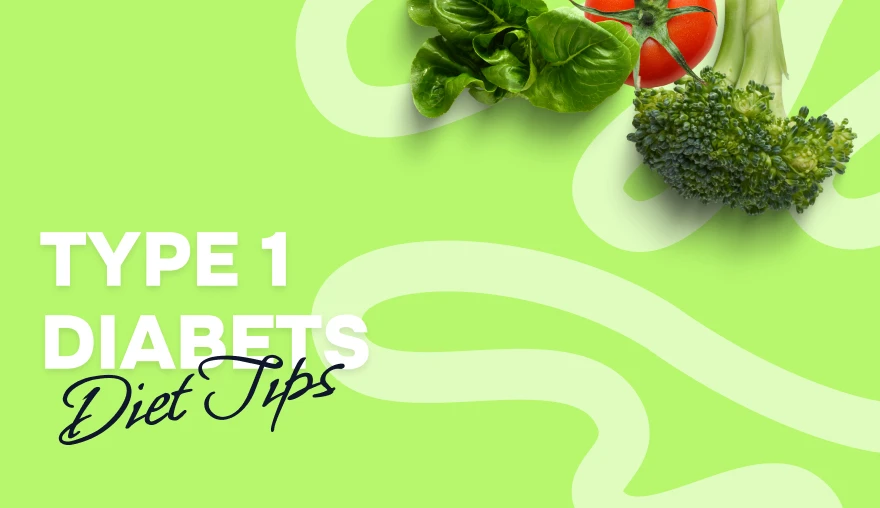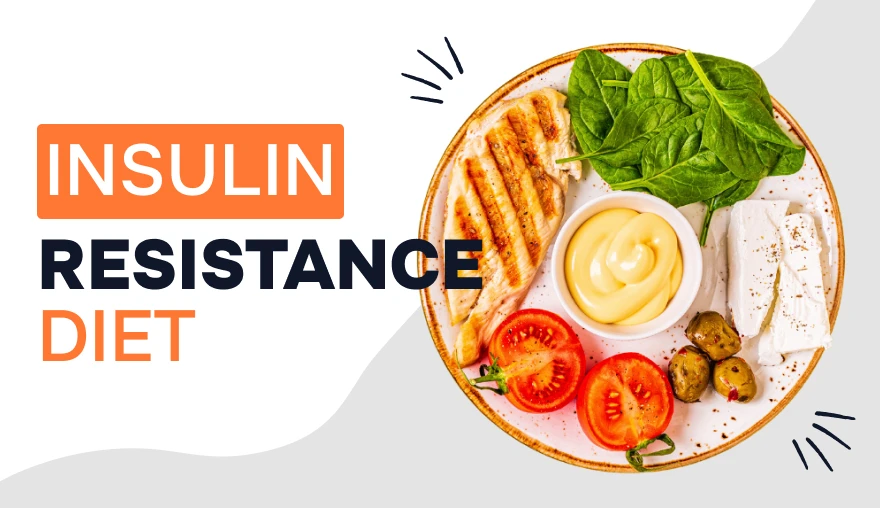In recent years, the ketogenic diet has been one of the most popular diets among people seeking to lose weight. What is this diet, how does it differ from others, and what are its advantages and disadvantages? Read our guide to the keto diet to learn more about it.
So, what is the keto diet definition from the medical point of view?
You probably have heard or already know that this diet involves high fat consumption, and it really does. In addition, this stringent diet limits carbohydrate consumption as much as possible but assumes moderate protein intake. Understanding how the keto diet works is crucial; otherwise, you can not lose weight.
You might be interested in the following:
- The popularity of the keto diet in Australia is similar to that of vegetarian and gluten-free diets.
- The global value of the ketogenic diet in 2023 will be approximately $12 billion.
- The popularity of the “keto” query in Google fluctuates, but you can notice a general trend for decrease.
How does the keto diet work?
In simple terms, a keto diet is a tool that switches glucose-using metabolism to fat-using metabolism. Diet forces the body to burn fat, not carbohydrates, because carbs are not consumed with food.
Here’s what you need to do to switch to ketogenic metabolism:
- Limit the consumption of carbohydrates to 20-50 grams per day (about 20 grams of carbohydrates in 1 banana, 1 potato or a small portion of rice).
- Eat foods high in fat and protein.
This diet aims to increase the level of ketones in the blood while ensuring the body’s nutritional needs. If you achieve this, you can start the fat-burning process.
Top 5 Keto diet rules
Rule #1. Bring the PFC balance (protein, fat and carbohydrates) to a ratio of 4:1 or 3:1
For example, the 4:1 ratio means you should have four times as much fat as the proteins and carbohydrates combined.
The dietician determines the PFC balance and the total calorie level for each individual depending on his age, level of activity and evaluation, and current calorie intake.
Rule #2. Reduce carbohydrate consumption to 20-50 grams per day.
To follow the basic keto diet, you need to deplete your carbohydrate reserves. This rule does not mean that you can consume 20-50 grams of pure carbohydrates, for example, at lunch. Carbohydrates should come mainly from vegetables; forget that you can eat sugar. To better understand – about 20 grams of carbohydrates are contained in 1 banana, 1 apple, 1 potato or a small portion of rice or spaghetti.
Rule #3. Eat high-quality fats.
Instead of saturated fatty acids contained in animal fat and butter, give preference to unsaturated fatty acids from fish oil and oil from olives, flax, avocado, pumpkin seeds or grape seeds.
Rule #4. Consume enough calories.
You may feel hungry and stressed if you refrain from eating enough calories. It will lead to headaches, fatigue and muscle weakness. Make sure you get enough calories. Find out your recommended daily need for calories with the help of our calorie calculator.
Rule #5. Don’t stop, and be patient.
Usually, the body enters ketosis after about 3-7 days. You will start losing weight in about 1-2 weeks, but for some people, it may take up to 2-6 weeks. In addition, in the early stages of the diet, many people suffer from unpleasant symptoms such as nausea, irritability and headaches. It’s called keto flu. Keto flu is normal; it shouldn’t stop you.
THESE ARE THE MAIN KETO DIET GUIDELINES. NEVER BREAK THEM.
How to start a keto diet in Australia
The first results of a weight reduction program are significant for long-term success. Therefore, any diet should be started correctly, trying to make as few mistakes as possible.
Consultation with an Australian dietitian practitioner and an individual meal plan will help avoid many mistakes. Remember that you will not technically be on a keto diet, if you do not achieve or maintain ketosis.
If you want to learn more about keto diet principles for beginners, please read our article on this subject.
How to follow a keto diet
For some people, dieting is easy, but for many, it is challenging for several reasons. However, by applying a few simple rules, it will be much easier to adhere to the diet, and the results will not take long to wait.
- For some people, dieting is easy, but for many, it is challenging for several reasons. However, by applying a few simple rules, it will be much easier to adhere to the diet, and the results will not take long to wait.
- Eat at a certain time, more in the morning and in the afternoon, and less in the evening.
- Drink at least 2 liters of water during the day.
- You don’t have to eat when you’re not hungry.
- Start the day with breakfast, but do not force yourself to eat if you usually have your first meal later.
- Do not forget to exercise and be active during the day.
- Do not accumulate stress. Relax and sleep.

What is ketosis
Our bodies have two sources of energy, ketogenic and glucogenic. It’s similar to a hybrid car, which also uses two power sources.
Ketosis is a condition in which ketone bodies are produced in the liver and used as a source of energy for the brain, muscles and other body parts. These bodies are produced by burning fat in the body. The glucogenic energy pathway is based on the breakdown of carbohydrates; it interferes with ketose.
Important! About 3-7 days after the beginning of nutritional therapy, the organism enters the condition of ketosis. If you consume more carbohydrates than recommended, the ketose process stops. When you return to keto diet staples, you will again have to wait a few days for ketosis to start.
Is the keto diet healthy?
Low carb high-fat keto diet effectively decreases body weight and also reduces:
- Waist circumference.
- Blood pressure.
- Insulin resistance.
- The incidence of epileptic seizures in children.
According to a recent study, other possible health benefits are as follows:
- Improving oxidative stress.
- Fighting malignant neoplasms.
- Better blood lipid count.
- Counteracting inflammatory processes.
- Reduction of some types of inflammatory bacteria in the intestine.
If you do not know is the keto diet good for you, consult your doctor.
Who should try it, and who should not
Nutritionists say that many people can benefit from a virtually carbon-free diet. So if you are generally healthy and looking for a way to reduce weight, there is no reason not to try it.
However, remember that this diet is restrictive and affects how you get energy from food. It is not recommended for all people, and it has a number of contraindications:
- Diabetes type 1.
- Pregnancy.
- Breastfeeding.
- Cardiac arrhythmias.
- Chronic kidney disease.
Subscribe to our blog
Get the latest insights.
What are the effects of a ketogenic diet?
Although a strict keto diet helps to get rid of excess fat, it is not recommended for long-term use. In the short term, we must remember that our body needs time to use ketones as fuel.
- Headaches.
- Trouble sleeping.
- Nausea.
- Abdominal discomfort.
- Energy reduction.
- Impaired mental performance.
- Increased hunger.
- Muscle spasms.

Relevant article
How to… Low Cholesterol Diet: Top Healthy FoodsConclusion
It is often believed that the keto diet, meaning the consumption of large amounts of fat and protein, is the best choice for many people. But it is essential to understand this type of nutritional therapy. It is one of the most restrictive diets; it has both advantages and disadvantages.
If you have a good diet plan, for example, compiled by a professional dietician, the diet is not that difficult. There is a large range of products that you can eat, so you can enjoy this meal plan.
FAQ
Do you have questions that you cannot answer? We have created this block so you can find what you are interested in. We will tell you how to lose weight, and you get the keto diet explained. You will also learn why it is important to stick to the rules and give useful advice.
What foods do you eat on a keto diet?
You can consume:
-
- Meat (beware of fried dishes in batter, as they contain a lot of carbohydrates), seafood, and proteins such as eggs and cheese.
- Useful substances and trace elements such as B-group vitamins, vitamin C, calcium and dietary fiber.
Milk and tofu also contain valuable proteins, but you must be careful with these, because they contain carbs.
What foods do you avoid on a keto diet (description and facts)?
Refrain from consuming extremely large amounts of saturated fatty acids, such as fresh cream, whipped cream, beef fat, lard, margarine, butter and cream cheese.
Saturated fatty acids are acids of animal origin that tend to accumulate in the body and turn into body fat. Excessive consumption of such acids can lead to excess weight and diseases related to an unhealthy lifestyle.
How can the keto diet help patients with epilepsy?
In fact, this nutritional therapy was developed specifically for patients with epilepsy. It was actively used after the publication of Wilder in 1921. It is now recommended in textbooks as a standard treatment for this disease. The best results (decrease in the frequency of attacks) are seen in children.
Is the keto diet good for weight loss?
Yes, it is. Studies show that consuming large amounts of fat and virtually eliminating carbohydrates helps to lose extra pounds. On the other hand, not every person is suitable for such a diet for one reason or another; it can be challenging to pass all keto diet stages.
According to a study conducted in Canada, the reasons why people have opted out of the keto diet are:
- 37% could not comply due to the severity.
- 34% said it was too expensive.
- 12% didn’t see the results.
It takes days to weeks to produce ketone bodies. If you knowingly or unconsciously consume more than 20-50 grams of carbohydrates per day, ketosis stops, and you cannot lose weight.
What are the top 5 keto foods?
You can choose your own products that will help you lose weight and that you will really like. People on the keto diet often choose keto-bread, keto-porridge, meat (poultry), salads, or seafood.
How long should I stay on keto?
It is essential to understand that the keto diet is a short-term, intense dietary restriction. Your doctor or dietician will tell you exactly how long to stay on it.
Healthdirect (an Australian government nonprofit organization that helps people manage their health and well-being) argues that there is little evidence of the long-term effectiveness of such nutrition.
Healthdirect discusses short-term benefits for some people, including losing extra pounds and improving health. The effectiveness of this diet after 12 months is similar to that of a normal diet.
Does the keto diet reduce belly fat?
When your body needs to use fat as fuel, it will find it wherever possible. Therefore, both visceral and subcutaneous abdominal fat will be burned.

“Hayley Liew has credentials as both a Provisional Psychologist and a Practicing Dietitian ”




